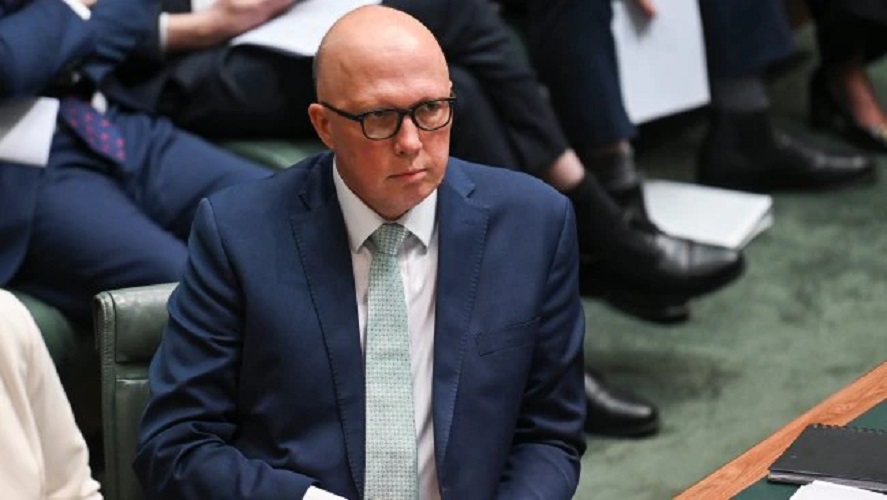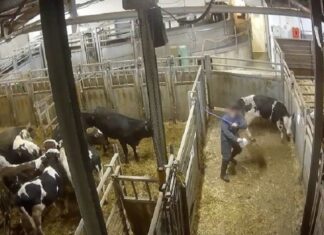Opposition Leader Peter Dutton Slams AEC’s Voting System for Voice Referendum as ‘Completely Outrageous’
Opposition Leader Peter Dutton has expressed strong criticism of the Australian Electoral Commission’s (AEC) voting rules for the upcoming Voice to Parliament referendum, calling them “completely outrageous.” Dutton argues that the rules would give a significant advantage to the ‘Yes’ campaign, despite the AEC Commissioner, Tom Rogers, asserting that no changes have been made to the process. In response to the controversy, Dutton intends to address the issue with the AEC Commissioner and advocate for a clarification of the rules.
The controversy stems from comments made by Commissioner Rogers, who mentioned the existence of “saving provisions” to ensure voter intention. He disclosed that voters would be allowed to use a tick to indicate a ‘Yes’ vote but would not be permitted to use a cross to signify a ‘No’ vote. This discrepancy has raised concerns about the fairness and impartiality of the voting process, leading to widespread public outrage.
Dutton has voiced his displeasure, highlighting the disparity in treatment between ticks and crosses. He emphasized the need for a fair and unbiased election, asserting that if a tick counts as a ‘Yes’ vote, then a cross should count as a ‘No’ vote. Dutton plans to write to the AEC Commissioner in collaboration with Michaelia Cash, the shadow attorney-general, urging a sensible interpretation of the rules.
Dutton also criticized Prime Minister Anthony Albanese for allegedly attempting to manipulate the outcome of the referendum by shaping the proposed body and initially denying tax deductibility status to donations for the ‘No’ campaign. Dutton accused the government of trying to skew the process in favor of the ‘Yes’ vote and called for an unbiased and transparent referendum.
The AEC has allocated a significant portion of its $336 million budget to raise public awareness about the voting rules for the Voice referendum. However, despite efforts to emphasize that voters are allowed to write only “Yes” or “No,” the AEC has faced backlash for creating confusion and disenfranchising ‘No’ voters, particularly those with English as a second language. Critics argue that this decision does not align with fairness and raises concerns about the integrity of the vote.
Fair Australia, a spokesperson for the opposition, expressed profound concerns over the AEC’s decision, deeming it unfair and unreasonable. They are exploring legal avenues and legislative remedies to address the issue and ensure that ‘No’ voters are not disadvantaged. The AEC, on the other hand, maintains that the instructions provided are clear, explicitly stating that voters must “clearly write yes or no, in full, in English.”
AEC Defends Voting System, Expects Minimal Informal Votes
In response to the controversy surrounding the voting system for the Voice to Parliament referendum, the Australian Electoral Commission (AEC) has defended its rules and expects the majority of voters to comply. The AEC has clarified that in the previous referendum held in 1999, the rate of informal votes was only 0.86%, and not all of these votes were related to ticks and crosses.
The AEC claims that it does not possess any discretion to overlook the savings provisions, which allow for a vote to be counted when the instructions haven’t been strictly followed, but the intention is clear. The application of these provisions is consistent with the legal advice the AEC has received for over 30 years and multiple referendums, including federal elections.
One of the reasons the AEC has denied the use of crosses is due to the potential confusion it may cause. In certain forms and languages, a cross can represent a check mark indicating a ‘Yes’ vote, making it subject to interpretation and challenge by scrutineers. Similarly, a tick may also be unclear or subject to interpretation, risking an informal vote. This is why the AEC emphasizes the need for voters to write the complete word ‘yes’ or ‘no’ in English.
The Prime Minister is set to announce the date of the referendum next week in South Australia, a crucial move that could potentially sway support towards the ‘Yes’ campaign and determine its success.
















































